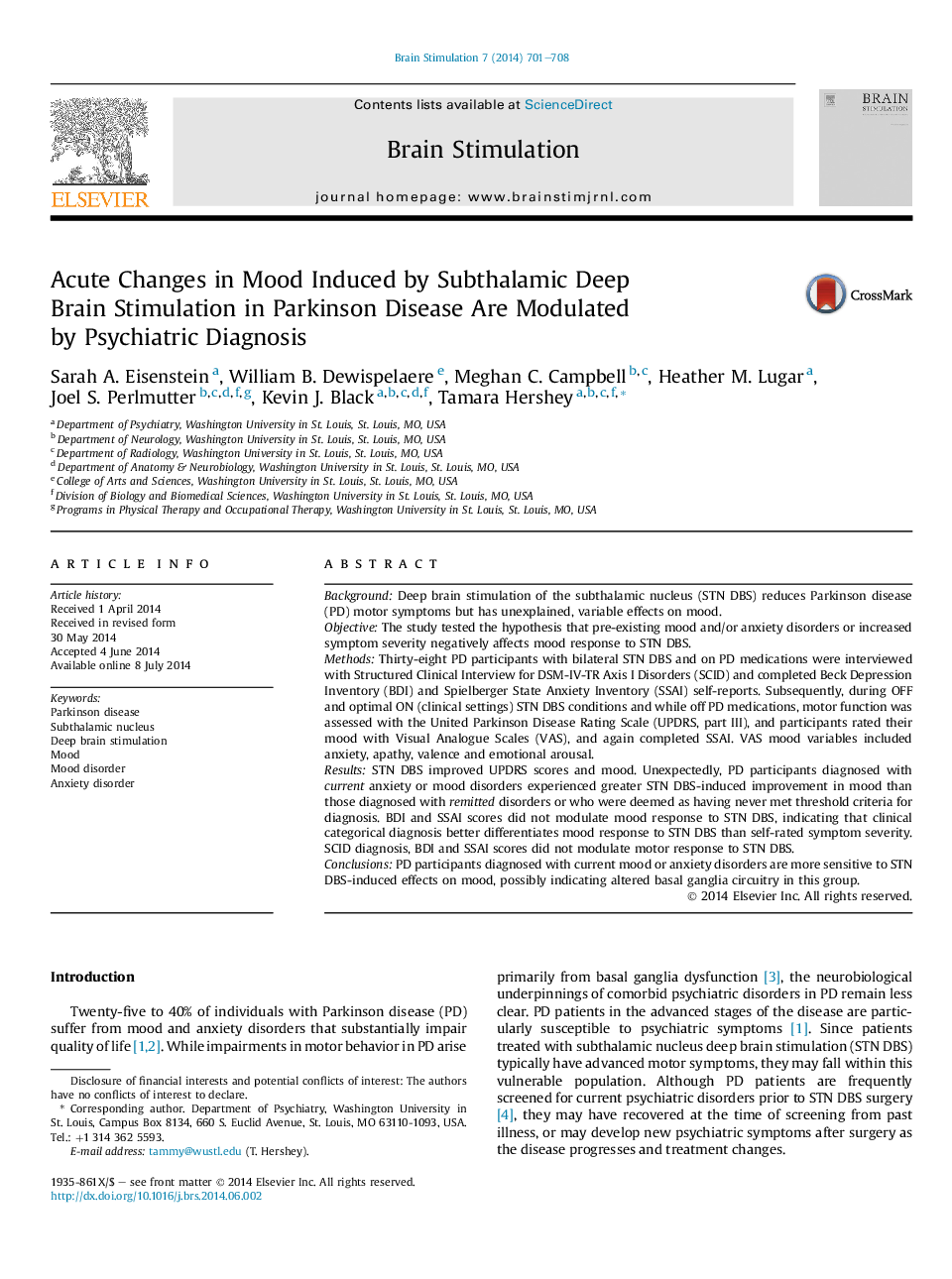| کد مقاله | کد نشریه | سال انتشار | مقاله انگلیسی | نسخه تمام متن |
|---|---|---|---|---|
| 6005596 | 1184667 | 2014 | 8 صفحه PDF | دانلود رایگان |
- Motor and mood responses to acute STN DBS were studied in 38 PD participants.
- STN DBS improved motor and mood outcomes relative to OFF DBS.
- Current psychiatric diagnosis was related to increased DBS-induced mood benefit.
- Brain circuitry may be altered in PD participants with psychiatric diagnoses.
BackgroundDeep brain stimulation of the subthalamic nucleus (STN DBS) reduces Parkinson disease (PD) motor symptoms but has unexplained, variable effects on mood.ObjectiveThe study tested the hypothesis that pre-existing mood and/or anxiety disorders or increased symptom severity negatively affects mood response to STN DBS.MethodsThirty-eight PD participants with bilateral STN DBS and on PD medications were interviewed with Structured Clinical Interview for DSM-IV-TR Axis I Disorders (SCID) and completed Beck Depression Inventory (BDI) and Spielberger State Anxiety Inventory (SSAI) self-reports. Subsequently, during OFF and optimal ON (clinical settings) STN DBS conditions and while off PD medications, motor function was assessed with the United Parkinson Disease Rating Scale (UPDRS, part III), and participants rated their mood with Visual Analogue Scales (VAS), and again completed SSAI. VAS mood variables included anxiety, apathy, valence and emotional arousal.ResultsSTN DBS improved UPDRS scores and mood. Unexpectedly, PD participants diagnosed with current anxiety or mood disorders experienced greater STN DBS-induced improvement in mood than those diagnosed with remitted disorders or who were deemed as having never met threshold criteria for diagnosis. BDI and SSAI scores did not modulate mood response to STN DBS, indicating that clinical categorical diagnosis better differentiates mood response to STN DBS than self-rated symptom severity. SCID diagnosis, BDI and SSAI scores did not modulate motor response to STN DBS.ConclusionsPD participants diagnosed with current mood or anxiety disorders are more sensitive to STN DBS-induced effects on mood, possibly indicating altered basal ganglia circuitry in this group.
Journal: Brain Stimulation - Volume 7, Issue 5, SeptemberâOctober 2014, Pages 701-708
